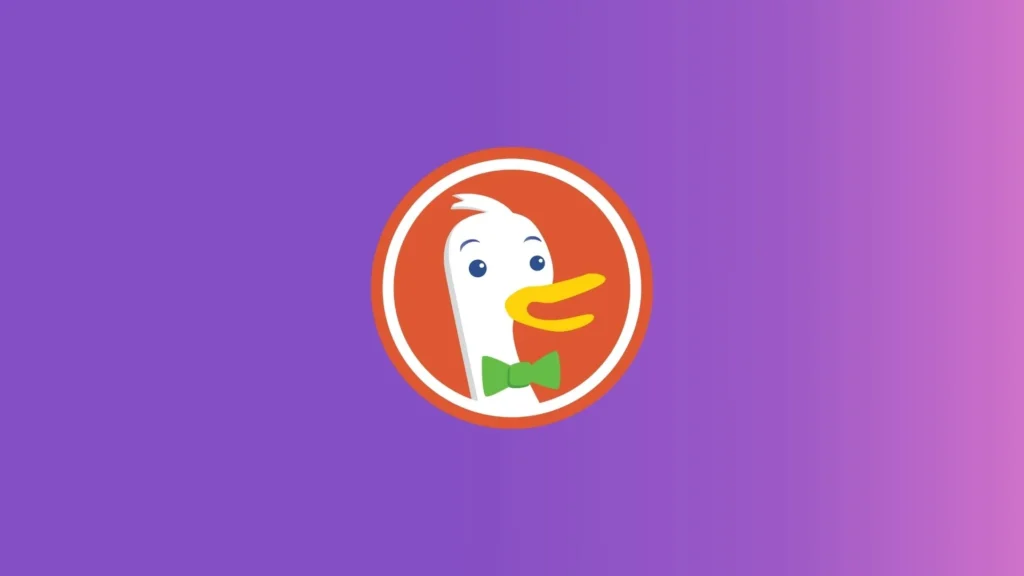In 2025, online privacy feels like a luxury. Every click, search, and website visit leaves digital footprints that companies eagerly collect. Enter DuckDuckGo Browser — a privacy-focused alternative that’s quietly revolutionizing how we browse the internet.
Think of DuckDuckGo as your personal bodyguard in the digital world. While other browsers operate like glass houses, exposing your every move to advertisers and data brokers, DuckDuckGo works more like a fortress, keeping your online activities private and secure.
What Makes DuckDuckGo Different in 2025
The browser landscape has changed dramatically. Chrome dominates with its ecosystem integration, Edge pushes AI features, and Firefox champions open-source principles. DuckDuckGo takes a different path entirely — it puts privacy first, features second.
The DuckDuckGo browser’s interface in 2025 has undergone a complete revamp to provide a cleaner, more intuitive user experience. But this isn’t just about looks. Every design choice reflects a commitment to protecting user data.
The browser doesn’t track your searches. It doesn’t build advertising profiles. It doesn’t sell your browsing habits to the highest bidder. In an era where personal data has become currency, DuckDuckGo operates on a refreshingly simple principle: what you do online is nobody’s business but yours.
Core Privacy Features That Actually Work
The first and perhaps most crucial enhancement in 2025 is the advanced data protection features. The browser automatically encrypts your connections whenever possible, using HTTP Strict Transport Security (HSTS) to ensure you’re always on the secure version of websites.
But protection goes deeper. Building on previous iterations, the 2025 version of DuckDuckGo integrates a smarter tracking prevention mechanism. This system actively hunts down tracking scripts, analyzing their behavior patterns to block them before they can collect your data.
The cookie consent nightmare that plagues modern browsing? DuckDuckGo handles it automatically. When the browser detects the pop-up, it sets the cookie preferences to maximize privacy and minimize cookies. No more clicking through endless privacy notices — the browser makes the privacy-friendly choice for you.
Email Protection: Your Digital Address Shield
One standout feature is the integrated email protection service. Users can now secure their email through the browser, generating unique aliases that hide their real email addresses.
Here’s how it works: DuckDuckGo gives you @duck.com email addresses that forward to your real inbox. When emails arrive at these addresses, the service strips out tracking pixels and other surveillance tech before forwarding clean messages to you. It’s like having a bouncer check your mail for hidden cameras before delivering it.
AI Features Without the Privacy Compromise
DuckDuckGo offers free access to popular chatbots at Duck.ai. Unlike other platforms, these AI interactions remain private. Chats are anonymized via proxying and never used for AI model training.
The browser includes AI-powered search assistance that can provide direct answers to questions without tracking your queries. This feature analyzes search patterns locally on your device, never sending personal data to remote servers.
Performance and Daily Use
Speed matters, and DuckDuckGo delivers. By blocking trackers before they load, pages often load faster than in traditional browsers. Think of it as removing unnecessary weight from a race car — without all those tracking scripts, websites run leaner and quicker.
The browser includes all essential features: bookmarks, password management, tab organization, and history. But each feature is designed with privacy in mind. Your browsing history stays on your device. Your passwords are encrypted locally. Even your bookmarks can be synced across devices without exposing them to cloud servers.
Cross-Device Synchronization
According to DuckDuckGo, you don’t even need to sign in – or even make an account – to use Sync & Backup in its browser, as DuckDuckGo never accesses or sees your passwords or bookmarks. This zero-knowledge synchronization means you can have the convenience of accessing your data across devices without sacrificing privacy.
The sync feature uses end-to-end encryption. Your data is scrambled on your device before transmission, and only your other devices have the key to unscramble it. Not even DuckDuckGo can read your synced information.
Mobile Experience
The mobile versions for iOS and Android mirror the desktop experience. Touch-optimized controls make navigation smooth, while the same privacy protections work silently in the background. Mobile-specific features include app tracking protection, which extends privacy benefits beyond just web browsing.
The Business Model: Privacy That Pays
DuckDuckGo proves that respecting privacy doesn’t mean sacrificing profitability. The company generates revenue through contextual advertising — ads based on your current search, not your search history. Search for “laptops” and see laptop ads, but those advertisers never learn who you are or what else you’ve searched for.
As of March 2022, DuckDuckGo handled 102,704,358 daily searches on average. This massive scale demonstrates that privacy-focused alternatives can compete with tech giants.
Integration With the Broader Web
DuckDuckGo’s results are a compilation of “over 400” sources according to itself, including Bing, Yahoo! Search BOSS, Wolfram Alpha, Yandex, and its own web crawler (the DuckDuckBot); but none from Google. This diverse sourcing ensures comprehensive search results without relying on any single tech giant.
The browser also plays nicely with modern web standards. Progressive web apps, video streaming, and complex web applications all work smoothly. You’re not sacrificing functionality for privacy.
Making the Switch: Practical Considerations
Transitioning to DuckDuckGo is surprisingly painless. The browser can import bookmarks, passwords, and settings from your current browser. The learning curve is minimal — if you can use Chrome or Edge, you can use DuckDuckGo.
Some adjustments may be needed. Search results might feel different at first, since they’re not personalized based on your history. Some websites that rely heavily on tracking might behave differently. But for most users, these are minor inconveniences compared to the privacy benefits.
When DuckDuckGo Shines Brightest
The browser excels in several scenarios. Researchers benefit from unbiased search results. Journalists protect their sources. Business professionals keep competitive research confidential. Anyone concerned about identity theft reduces their digital footprint.
For those ready to make the switch, you can easily go to download the browser and start protecting your privacy today. The installation process takes just minutes, and you’ll immediately notice the difference in how clean and uncluttered the web feels without constant tracking.
But even casual users benefit. No more creepy ads following you across the internet. No more wondering what companies know about you. No more feeling like your browser is spying on you.
The Future of Private Browsing
By 2025, it’s predicted to capture a more significant share of the search engine and browser market, potentially reaching millions of active users who identify with its privacy-centric values. This growth reflects a broader shift in user priorities.
As privacy regulations tighten globally and users become more aware of data collection practices, DuckDuckGo is positioned to lead the privacy-first browsing movement. The browser continues evolving, adding features while maintaining its core privacy promise.
For anyone tired of being tracked, profiled, and commodified online, DuckDuckGo offers a refreshing alternative. It proves that we don’t have to sacrifice our privacy for a good browsing experience. In 2025, that message resonates more strongly than ever.
The choice is yours: continue browsing in a glass house, or switch to a browser that respects your privacy. With DuckDuckGo, you’re not just changing browsers — you’re taking control of your digital life.




